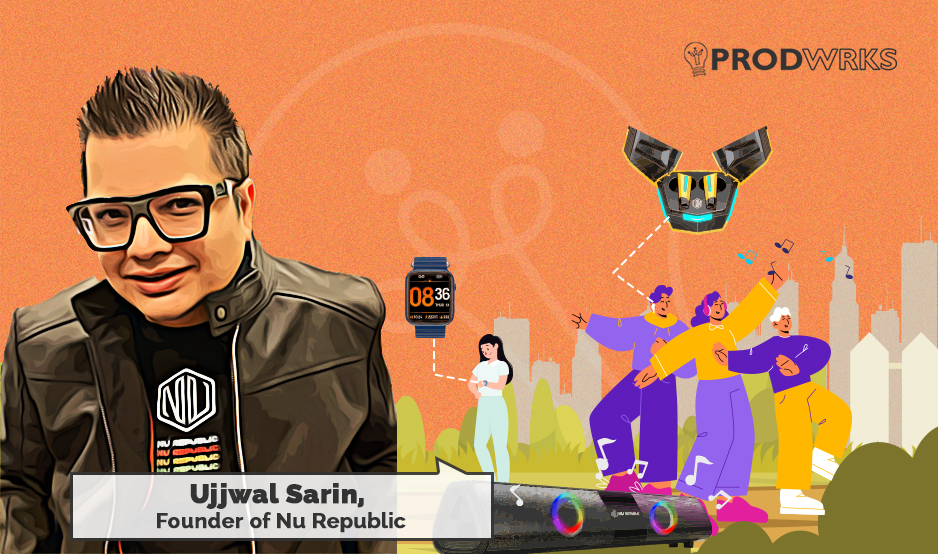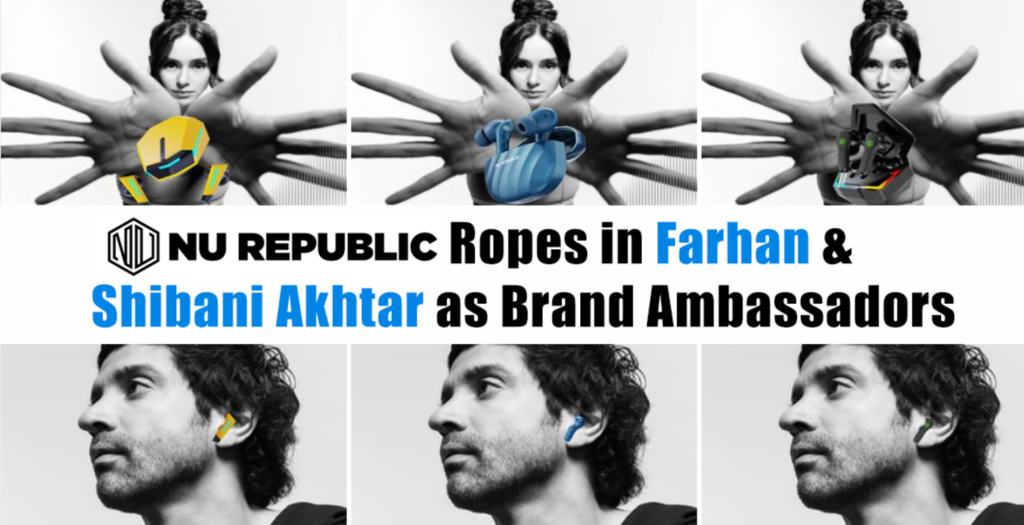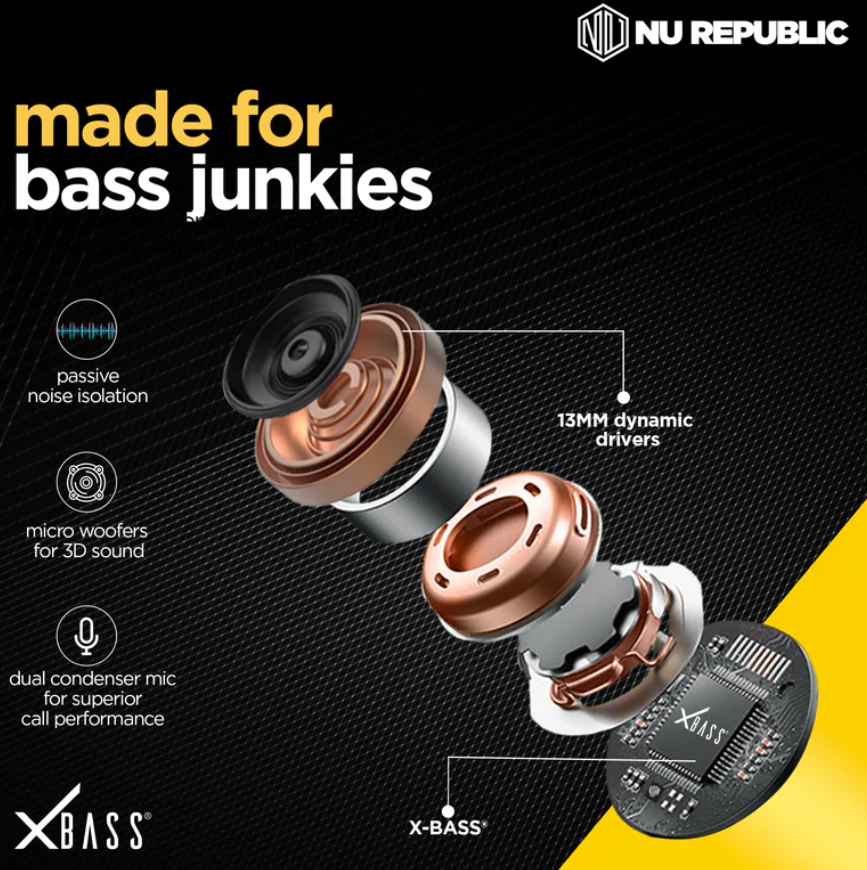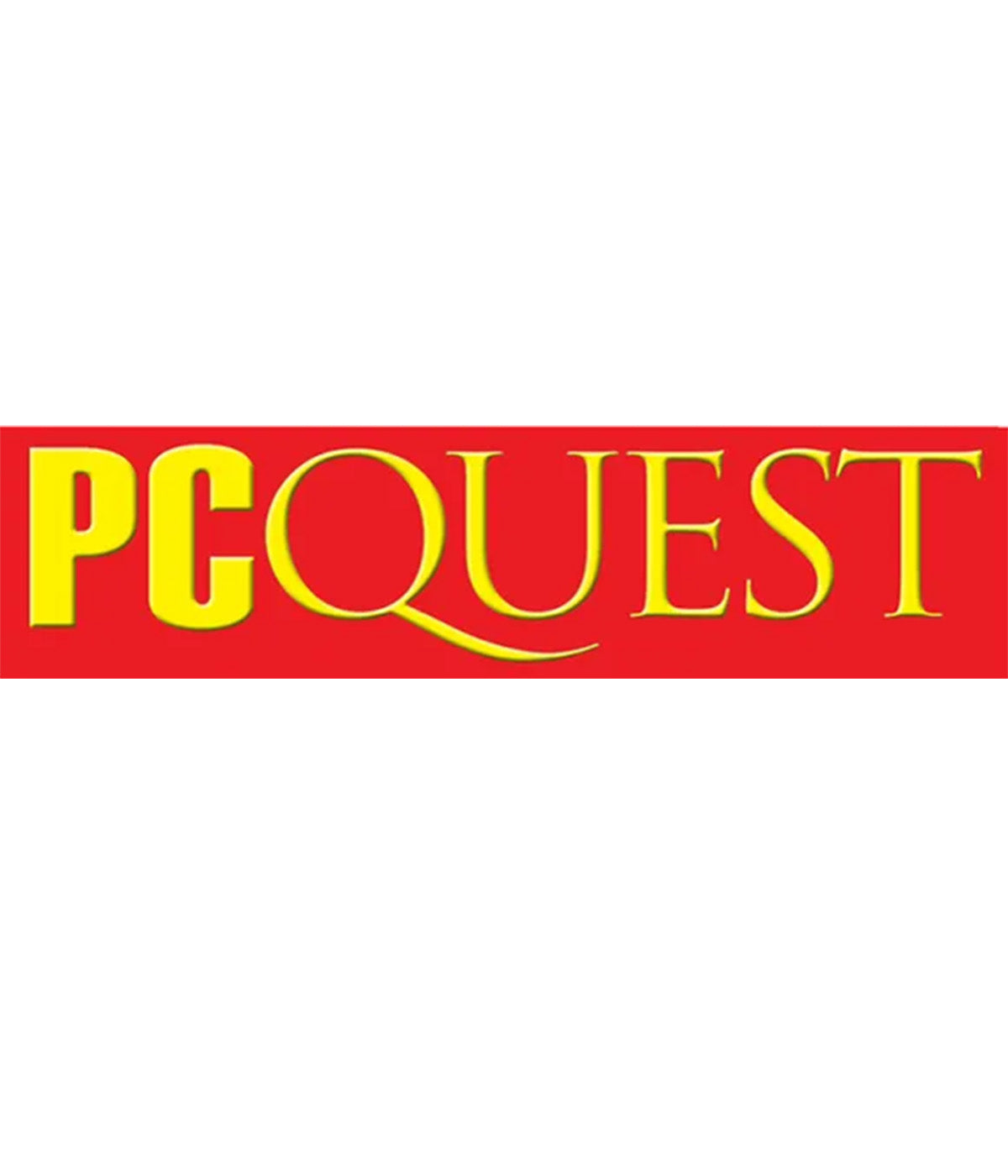
The public perception of aging technology is fascinating. Think about it. Bluetooth and WiFi – once symbols of cutting-edge during the good old ‘Nokia days’ have swiftly transitioned from marvels to mundane. For GenZ and the younger generation – the pesky 10, 15, and 18-year-olds who have known wireless technologies since birth, it is no longer considered a technology! It’s become an innate aspect of their life.
It’s akin to how we kind of grew up with landline phones as just another product that simply existed, but our grandparents viewed it as high-tech. For the GenZ and beyond, wireless connectivity has now moved into this realm. (Gosh, it makes me feel old.)
So, how do you sell a mainstream wireless product, like Bluetooth earphones, to a generation for whom it’s no longer exclusive since everybody has it?
ProdWrks sought the answer from Ujjwal Sarin, founder of the consumer tech brand, Nu Republic. They sell wireless audio and wearable tech products like TWS earbuds, headphones, speakers, and smartwatches.

Ujjwal explains, "In consumer markets, there is a demand curve when a technology is new. Then come the brands that get people accustomed to the technology and make it mainstream. Once that technology becomes a part of their daily lives, the consumption journey begins. After a while, consumers get tired of using whatever brand they've been using so far, and they'll want to upgrade. That's where Nu Republic comes in."
Nu Republic is targeting the consumption journey of the GenZ and younger generations who are the typical “upgrade consumers”. These consumers are predominantly males between the ages of 20 and 25 who want to express their individuality in every aspect of life.
They already have smartphones and may already own multiple wireless devices. They now want to upgrade upwards into more premium products or upgrade sideways to cooler tech brands that evoke emotion through design.
"You don't wear the same brand of jacket or shoe you wore 10 years back. Your preferences in life change. The brands you buy today will have some kind of attitudinal alignment with you, and they embody you. Similarly, the wireless earbuds you wear today are no longer just a unidimensional technology. It must represent your individuality," Ujjwal remarks.
Ujjwal’s vision is to make “cool, sexy, and funky products” with a clear attitudinal benefit for individuals who perceive electronics, especially wearables like earphones and smartwatches, as an expression of their identity, not just as a piece of technology. He is confident that these individuals will buy Nu Republic’s products.
"The whole world is moving towards accessorization and premiumization. We are not selling to first-time users. The guy in his 20s has already used a few of these wireless products from other brands. When he wants something more to flaunt, we'll be there to welcome him."
Gaining the Trust of GenZ
Since everyone has their own definition of what is cool, building universal acceptance for ‘coolness’ and gaining trust with this younger demographic to buy the product is easier said than done. Ujjwal takes an approach where he goes by the gut instict of his team and what they consider as cool internally.
"The beauty of qualitative aspects of a product (visual and emotional appeal) is that there is no manual for it. It is absolutely subjective. I've been through this entire curve so many times, and I've realized that if I make a product for myself first, which gives me an 'aha moment', I'm sure I'll find a zillion more 'me' to sell this to."
Ujjwal follows a “form-first” approach to making their products look cool and does not try to entice the consumers with “functions” (features) like the other brands in the crowded consumer tech segment.
"We do not achieve desirability through functions. We don't want to be the cheapest to give an 'X' feature. That's conventional wisdom. Many brands do it and continuously push the price table down. Our endeavour is to achieve this through the 'form' of the product. That's the vision of our brand. We want to see the twinkle in the eyes of the people who look at our product. It should make them feel good."

"We've signed Farhan Akhtar and Shibani Akhthar as our brand ambassadors. Farhan has done multiple roles, is at the forefront of music and acting, and excelled in all of them. He has this sense of cool, which is not conventional, but it's very evident. The same goes for Shibani as well. Between the two of them, they embody the spirit of Nu Republic."
Product Development in Nu Republic
"Trend spotting is understanding what is working for your customers. Second, comes colours and everything you can use and customize to fit your customer requirements. The third is the homologation of the product. If it's an international product, how does it fit Indian tastes and preferences."

"Mostly everyone just wants loud sound in India. So we must re-engineer products and simultaneously offer our signature sound, which our customers want. That's something which happens in-house. On the appearances side, we keep chasing global trends, be it in terms of the colors or designs, which we believe can work in India."
"We give strategic inputs to our contract partners who build products as per our specifications in the most efficient ways, thereby creating economic value for themselves and us."
"Even a bag of chips today is not manufactured by the brand owner. The manufacturing companies today have all the tech and prowess to ensure that manufacturing happens in the best possible way. So, we prefer outsourcing manufacturing. We are good at understanding the customer's pulse and building consumer-facing products which they appreciate. Everyone must focus on what they're good at."
Building a Consumer-Centric Moat
"Eventually, we will build sustainable long-term moats around both these points. We are building a consumer-led moat as a brand to continuously engage with customers, understand their preferences, and stay true to the brand's vision. By focusing on the consumer, we aim to build a lasting connection beyond mere transactions."
Vision for the Future
Nu Republic aims to surprise and captivate consumers with products that seamlessly integrate into their lives. Ujjwal hints that their vision for the next couple of years revolves around creating product combos in a visual forms that excites and delights consumers.
These products would merge multiple functions into exciting, innovative forms. For instance, the fusion of a power bank with wireless TWS earbuds as a single product.
On a parting note, Ujjwal shares a crucial piece of advice for aspiring founders and leaders building avant-garde products and designs, stressing the importance of unwavering focus on the vision you have for your product, which he believes ensures atleast a 50% chance for success.
“When I say vision, it means who you are building for, what you are building, why you do this, and what makes you happy and gets you going. This is the source of your motivation. Stick to your vision, your mission, and your values. Don’t keep changing them. Everyone is an armchair activist and will keep suggesting different things to you. But don’t dilute your own vision,” says Ujjwal.













